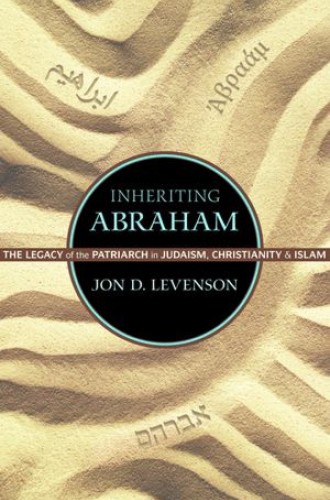Inheriting Abraham, by Jon D. Levenson
As long ago as 1996, Jon Levenson wrote an important article, “The Universal Horizon of Biblical Particularism.” In that piece he reflected on the way in which the Hebrew Bible adjudicated the particularity of Israel and a reach beyond Israel to the nations. In this book he takes up that same question in a different form, now with reference to the complex reality of Judaism, Christianity and Islam as coadherents in important ways to the biblical tradition, and specifically to the tradition of Abraham.
Although the book is of value for its shrewd probes of the Genesis narrative, Levenson has a very different interest in mind. His concern is the current notion that the three “religions of the book” are bound together by a common rootage in the figure of Abraham as “the father of faith.” That easy assumption was made popular by Bruce Feiler’s book Abraham: A Journey to the Heart of Three Faiths. The claim is also the subject of more serious theological reflection by a Roman Catholic scholar whom Levenson cites, Karl-Josef Kuschel.
Levenson shows that Kuschel is not evenhanded and that Christianity wins out. The same appeal to Abraham was featured, Levenson reports, by the Global Negotiation Project at Harvard. The target of Levenson’s book is the kind of easy, romantic ecumenism that assumes that common rootage is a basis for trust and solidarity across confessional lines. With tenacious urgency, Levenson shows that such an assumption is at best simplistic, and the implication of his book is that the assumption is a distortion and misconstrual of grave proportions.






